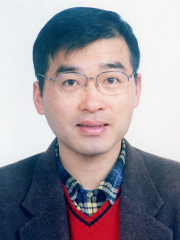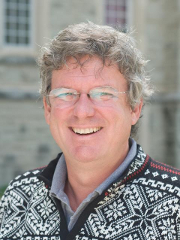informatik


The forum will take place in Conference Hall of the SciTech Building at Guangxi University for Nationalities.
The MIC schedule is available in pdf format.
The MIC poster is available in jpeg format.
| Tianxin Cai | |

|
Tianxin Cai, born in 1963, is a Chinese poet and mathematician. He received his PhD in number theory from Shandong University in 1987. He has published twenty books of poetry, essays, travelogues and biographies. In 1995, he founded poetry review, Apollinaire, which is considered one of the most important underground magazines in China. Cai has translated into Chinese the works of Jorge Luis Borges, Gabriel Garcia Marquez, Octavio Paz, Antonio Porchia, Elizabeth Bishop, Margaret Atwood, and others. His poems have been translated into more than twenty languages, with books published in English, French, Spanish, Korean, Croatian, and Turkish. He has participated in numerous poetry festivals and has traveled to more than ninety countries. Tianxin Cai lives in Hangzhou where he is a professor of mathematics at Zhejiang University. |
|
Two Kinds of Culture: Science and Humanities We will discuss present situation of two cultures: science and humanities. We include mainland China and trace back to oriental and occident history. Beginning with Duke Zhou and Pythagoras we end in late 19th and 20th century. So much difference between the west and the east, we will show a lot of interesting examples and express our point of view. As for the science and the humanities: We believe that both of them are certain reflection of our minds and they change as time goes by. Our attitude is, that there is a big gap between them, but no inevitable isolation. They need each other both in ourselves and in today society, with similar law in the developing history. |
|
| Stephen M. Watt | |

|
Stephen M. Watt is Distinguished University Professor at the University of Western Ontario in Canada. He received numerous research awards for his work in mathematical data communication, programming languages, and software system development, among others. Professor Watt is fellow of the Fields Institute for Research in Mathematical Sciences. His current research interests span across such areas as computer algebra, pen-based computing, programming languages, and compilers. |
|
The Limits of Computation This talk examines the question of what computers can ultimately do. We start with the basic logical principles on which computers are based and show how these are implemented in hardware. We discuss the nature of algorithms and how they can be realized with computer programs and then look at the frontier of what programs do today. We explore how the computers of today have some clear directions for the near future, and then ask what the further future holds. Not only will the future of computing have a major impact on science and mathematics, but it will also raise new ethical and legal issues. The talk concludes with a discussion of what questions, even precisely defined mathematical questions, computers will never be able to answer. |
|